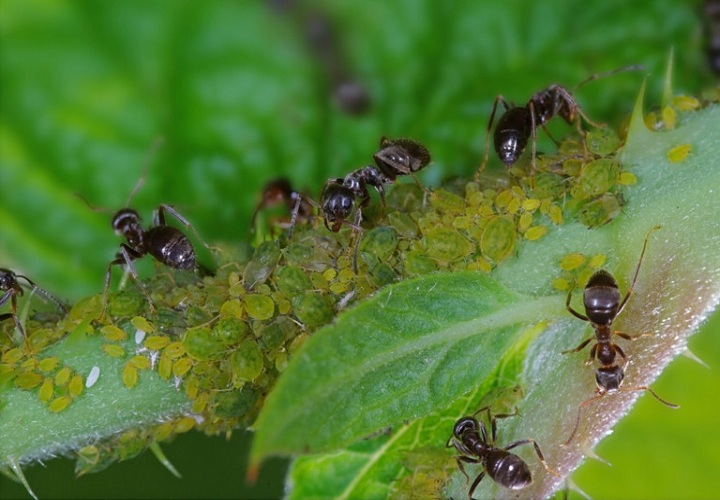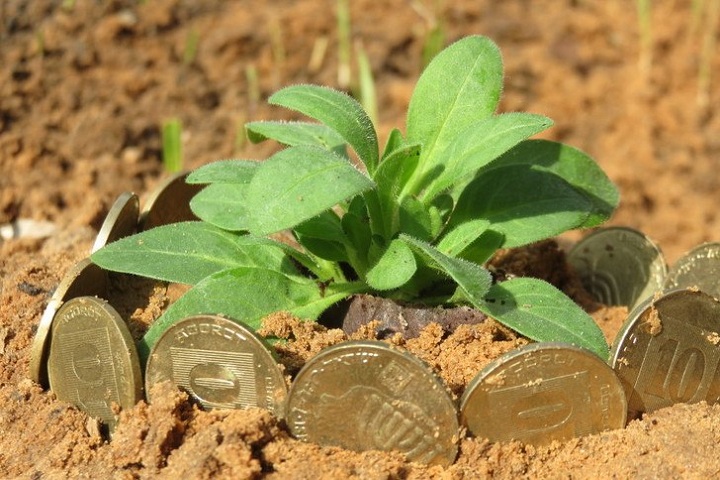People who garden organically will often go to great lengths to ensure the health and safety of their plants without resorting to potentially dangerous synthetic chemical fertilizers and pesticides.
Here are some tried-and-true methods for keeping your plants happy and healthy without resorting to hazardous chemicals.
Although they may seem out of the ordinary at first, these strategies have been shown to be very successful over time.
Put your kitchen waste in the garden
Even if you don’t have a compost pile, you may still put all of your food scraps to good use in the garden.
Dig a long, 1-foot-deep ditch in between the vegetable rows to collect the waste. Begin dumping the day’s kitchen waste from one end of the ditch.
Waste can be thrown into a ditch and immediately covered with soil placed along the ditch’s border, eliminating odor and insect problems.
Once the ditch is filled up entirely, you’ll have a slightly elevated bed.
The next year, you can use this raised bed to grow your vegetables instead of digging another ditch.
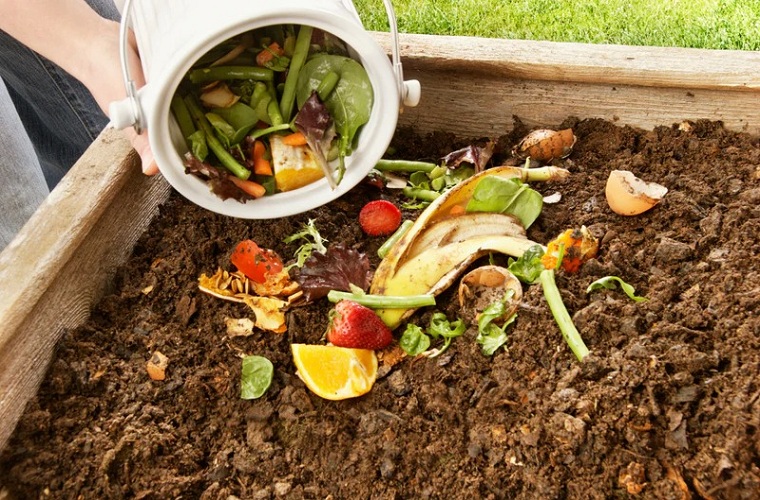
Weed tea as a fertilizer
To get even with the weeds that deprive your garden plants of nutrition, make a weed tea fertilizer. Prevent the weeds from growing again by cutting them up and soaking them in a tub of water in direct sunlight.
A nitrogen-rich green tea should be ready in a few days. Apply it to the soil or spray it on the leaves.
Comfrey (Symphytum officinale) can be used to make excellent fertilizer whether it is grown for medicinal or non-medicinal uses.
The entire plant can be used to prepare the tea.
Its deep roots draw nutrients from deeper layers of soil, making them available to other plants.
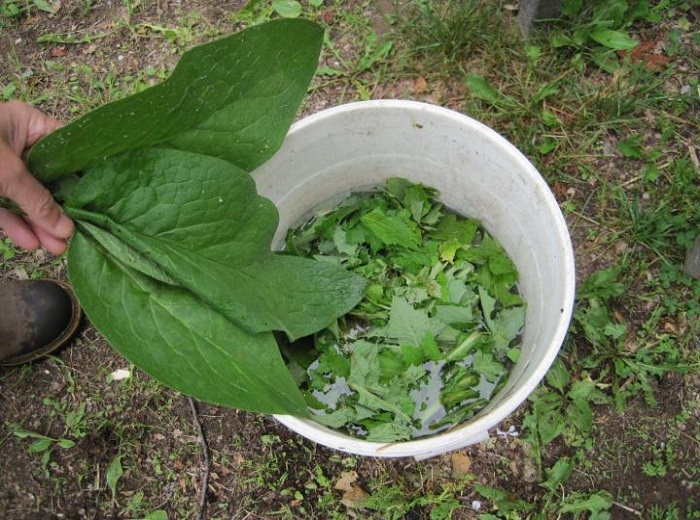
Use vinegar to destroy weeds
Most organic gardeners are opposed to using herbicides, but when faced with a weed infestation, they may change their minds.
Instead of using harmful chemicals, you can use vinegar to kill weeds.
Fill a spray bottle with vinegar and use it to douse the weeds. If you want the best results, you should do this on a hot, sunny day.
The acid will scorch and kill the weeds in a matter of days.
After that, water the area to eliminate any excess acidity, or put baking soda on the soil to neutralize it.
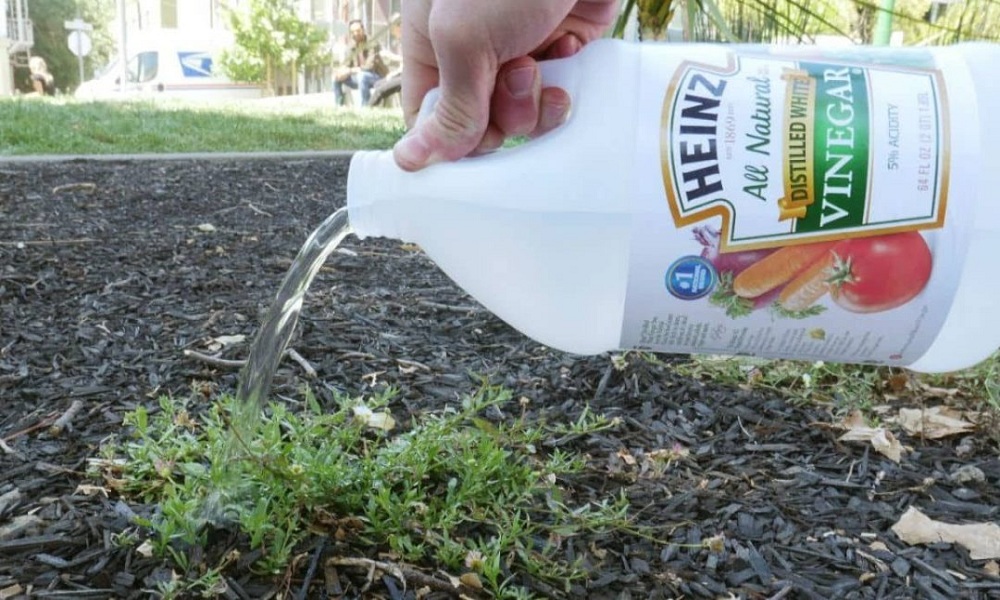
Put eggshells and oyster shells in your garden beds
You can keep your garden’s soil sweet and healthy by mixing crushed oyster and egg shells together to use as slow-release fertilizers.
Make the pieces as small as you can by crushing them with a rolling pin.
The shells’ calcium carbonate content causes the soil to become alkaline, making it ideal for use near plants that prefer such conditions.
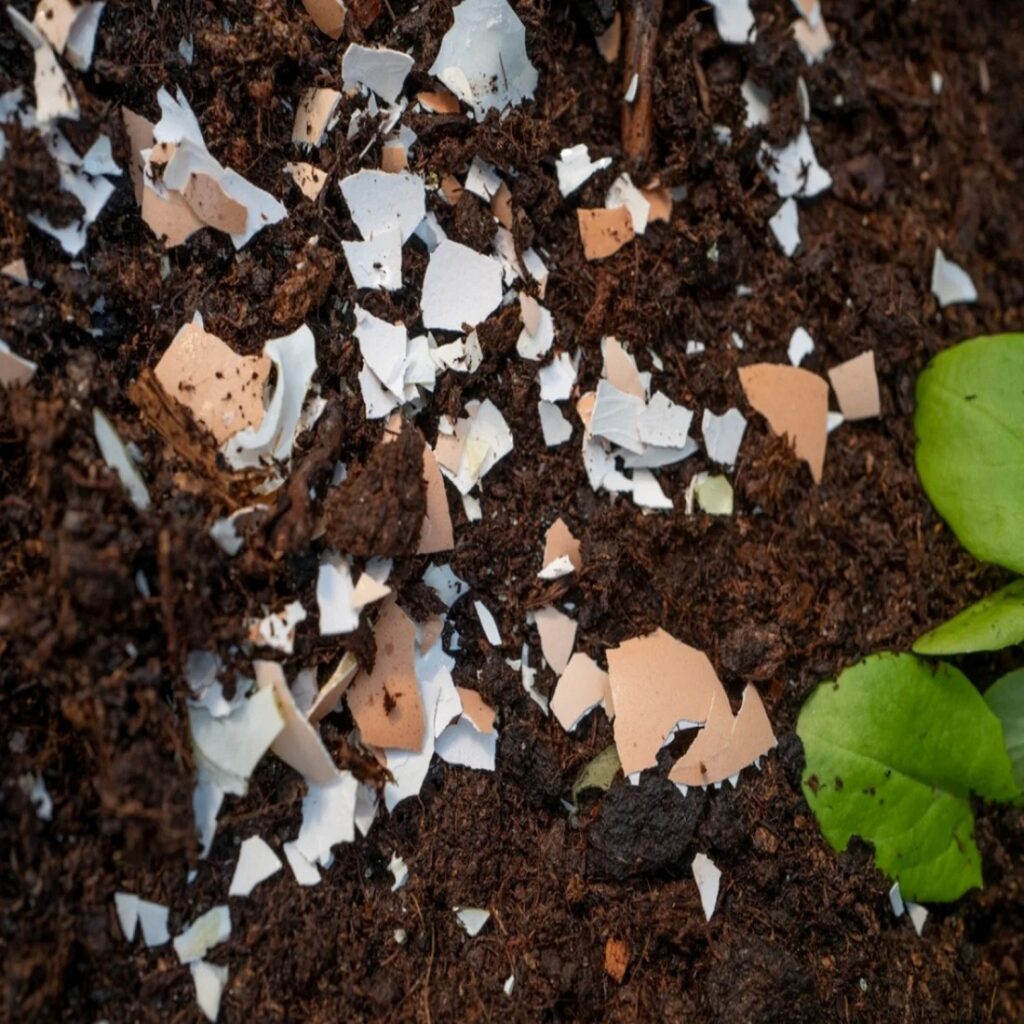
Wood ash and coffee grounds can be used to adjust the pH
Large-scale soil amendments should aim to bring the pH as close to neutral as possible, but spot treatments can keep individual plants happy.
Wood ash from stoves and fireplaces can alkalinize your asparagus patch and vegetable beds.
Coffee grounds are safe to use around roses, azaleas, and rhododendrons.
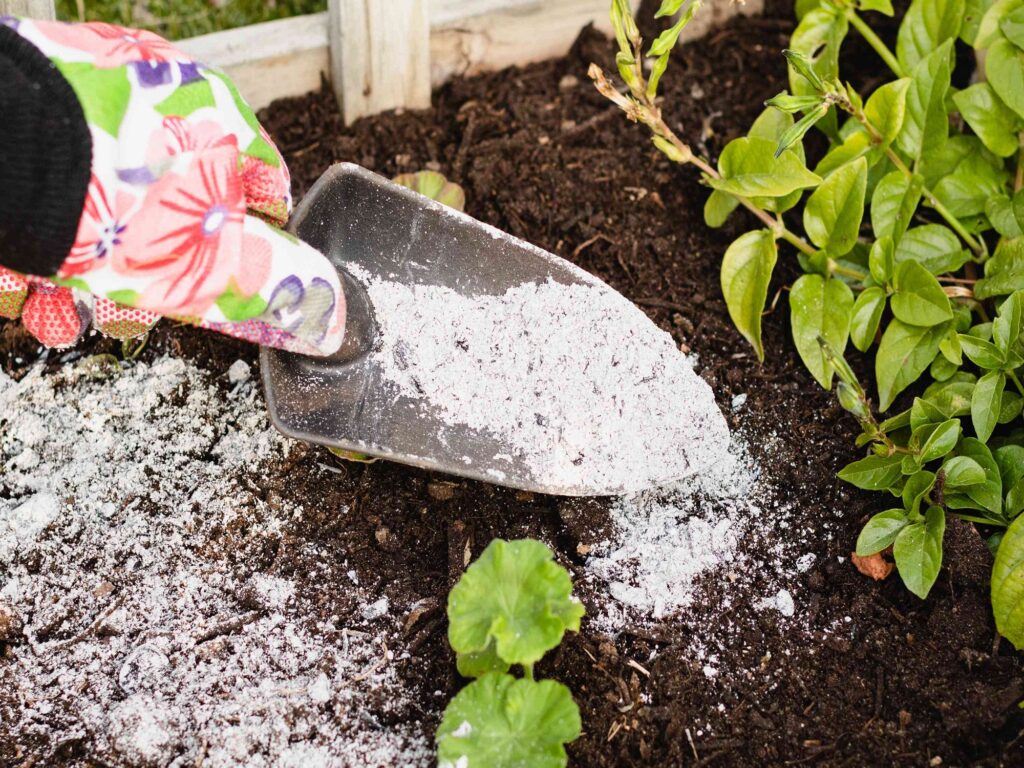
Epsom salt helps fruit set better
Try some Epsom salt if your pepper plants stop producing fruit. Almost immediately, you’ll notice a marked increase in fruit production.
It is possible that the magnesium in the magnesium sulfate salt is responsible for its beneficial effects.
In the same way that iron is essential to hemoglobin, magnesium is a crucial component of chlorophyll.
To make an Epsom salt foliar spray, combine 2 tablespoons in a quart bottle of warm water and shake well to dissolve.
From the time they bloom until fruiting is complete, pepper plants should be sprayed every two weeks.
Alternately, sprinkle Epsom salt crystals once a week.
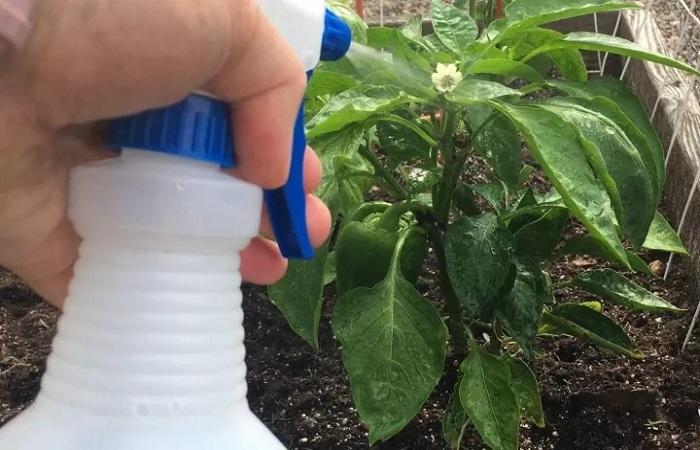
Rusty nails in a watering can aid in the treatment of iron deficiency
Plants cannot flourish without sufficient iron. Iron chlorosis is the result of a lack of this mineral.
Yellowing leaves with green veins are a common symptom.
Iron chlorosis is typically caused by plants not being able to take up iron from the soil, rather than a lack of iron itself.
Soil conditions that inhibit iron uptake include high pH and excess phosphorous.
Spraying the plants with iron-rich water can be a quick fix, but soil amendment over the long term is preferable for lasting results.
A steady supply of iron can be ensured by placing a few rusty nails in the watering can.
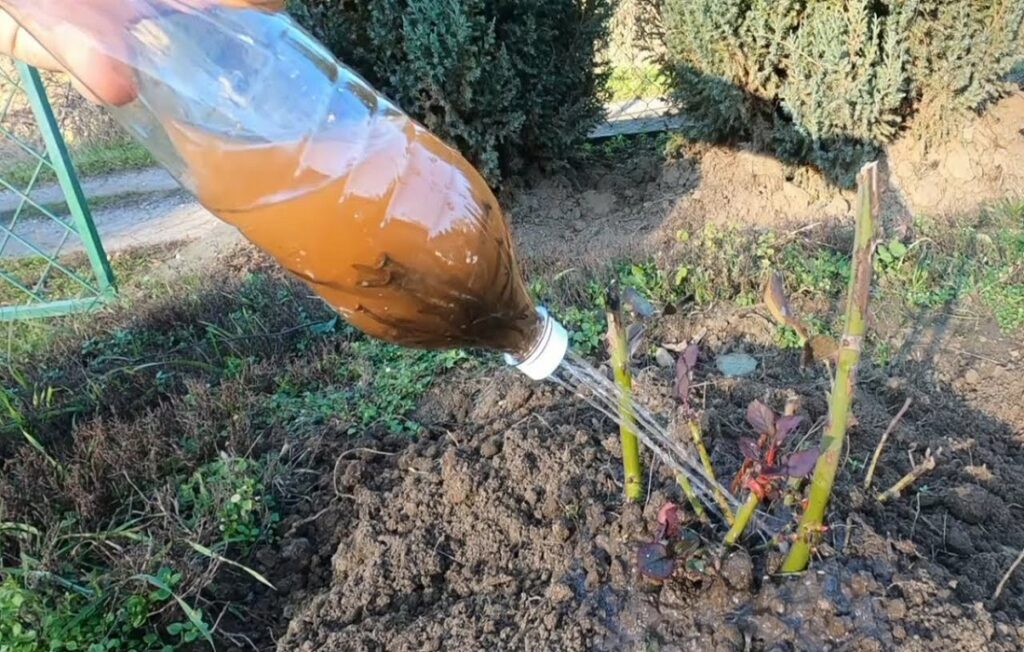
Coconut water helps plant’s roots grow
Coconut water, which is high in gibberellic acid and cytokinins, can be used in place of synthetic rooting hormones to hasten the germination of seeds and the development of roots from cuttings.
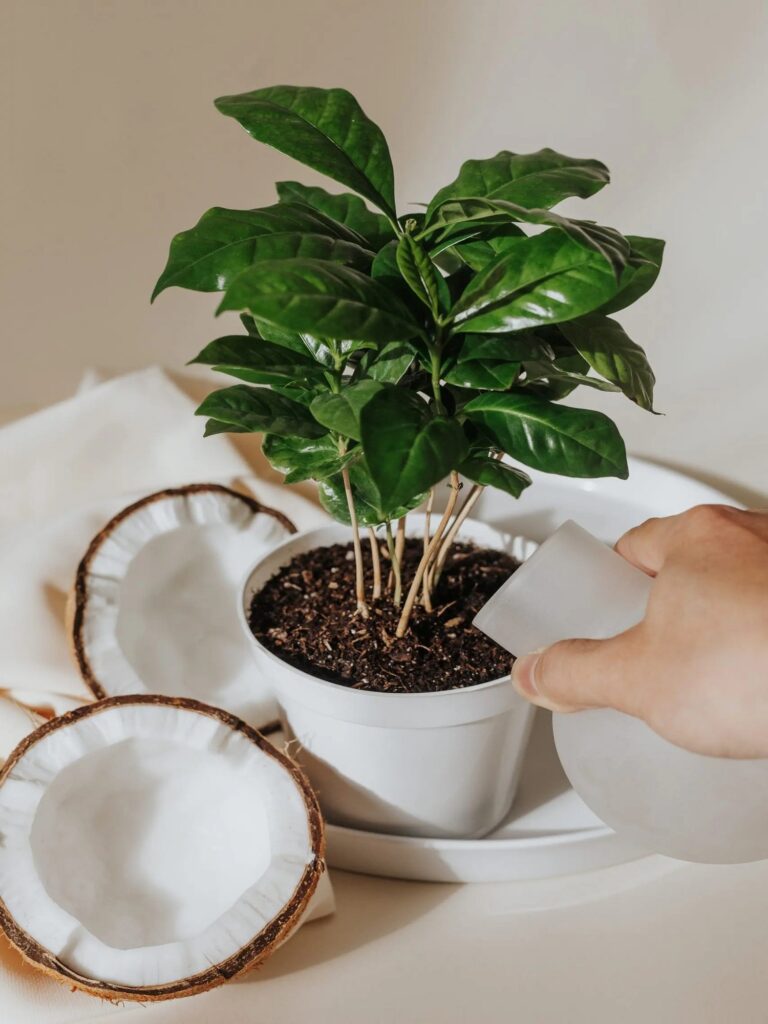
Use water tubs to lengthen the growing season
Garden water tubs allow you to control the local environment for your plants.
During the day, solar radiation heats up the garden soil and the water.
In cool evening weather, the soil cools off rapidly, but the water takes a while to let go of its stored heat.
Water acts as a heat sink in the garden, keeping it a few degrees warmer and giving your plants a little more time to grow before winter arrives.
Plant tents provide the ideal climate for using water tubs. To avoid water loss from evaporation, cover the tubs with black plastic sheeting.
This will aid in the process of heat absorption as well.
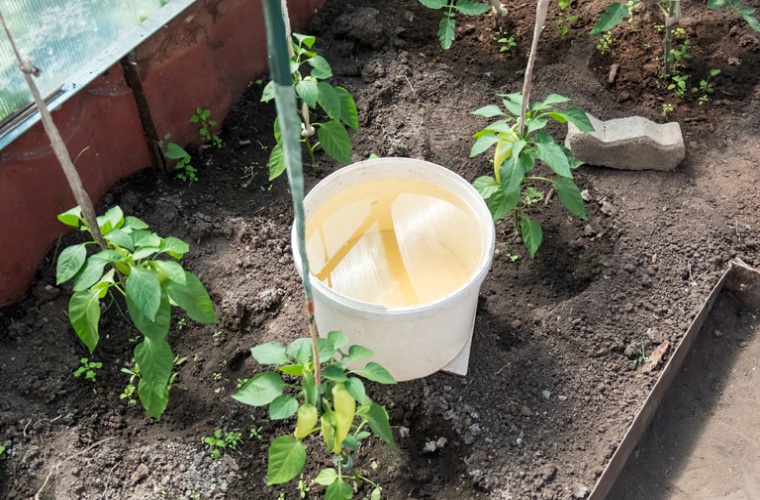
Use baking soda to treat fungal infections
Baking soda can be used to make a low-cost and non-toxic anti-fungal spray, among many other applications around the house.
It’s simple to whip up as soon as you notice mildew on your tomato or cucumber plant.
Just add 1 tablespoon of baking soda to a gallon of warm water and spray it around. Drench the soil around the plant and let the solution drip down the plant’s entire length.
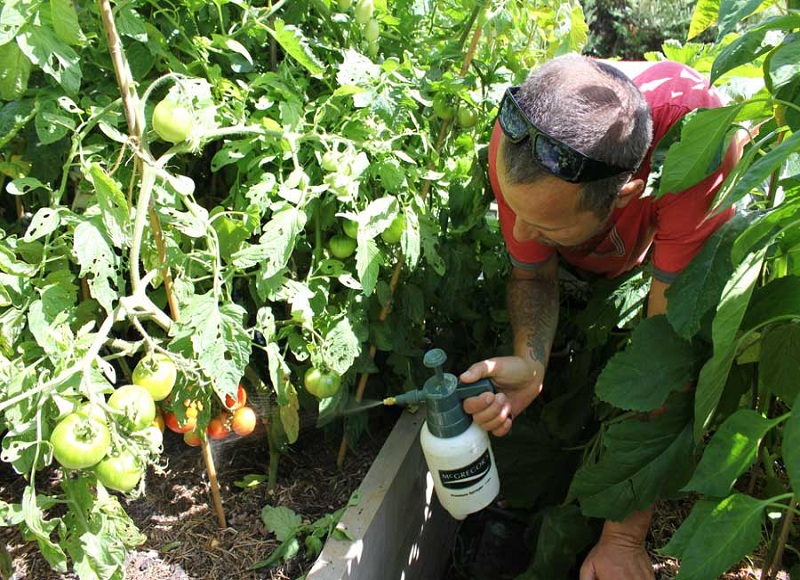
Give milk to your plants
Milk’s nutritional value isn’t limited to the animal kingdom. Plants benefit from occasional milk treatments.
Milk can be injected into plant stems. If you’d rather not risk it, you can always use a foliar spray or root zone soak made from diluted milk.
You can dilute milk at 20% to combat powdery mildew in zucchini.
At smaller doses, milk appears to be helpful, but at higher doses, it can cause harm.
Decomposing milk can cause a bad smell, so there should be enough time between applications.
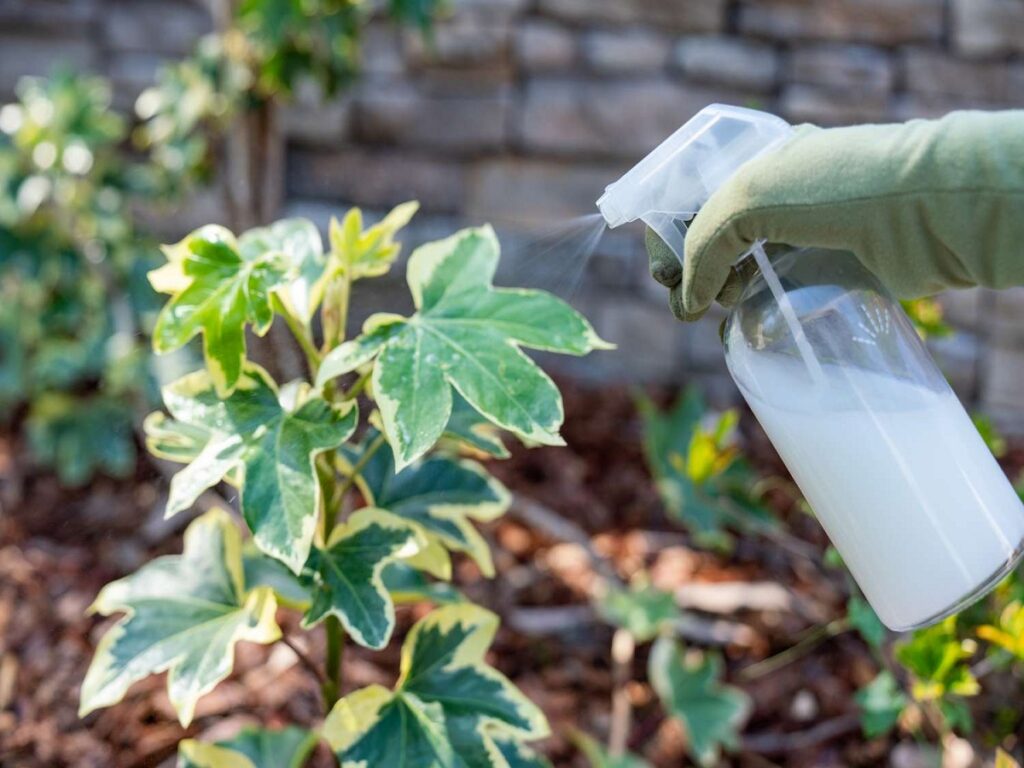
Bury a few pennies in your garden
In order to maintain healthy soil and prevent fungal infections, burying a few coins here and there is all that is required.
To be specific, only copper-containing coins would be usable.
Copper is commonly used as a fungicide. Copper sulfate and lime are the main ingredients in the common fungicide Bordeaux mixture.
Copper coins can be used to kill off soil fungi because the metal slowly leaches out of the coins when buried.
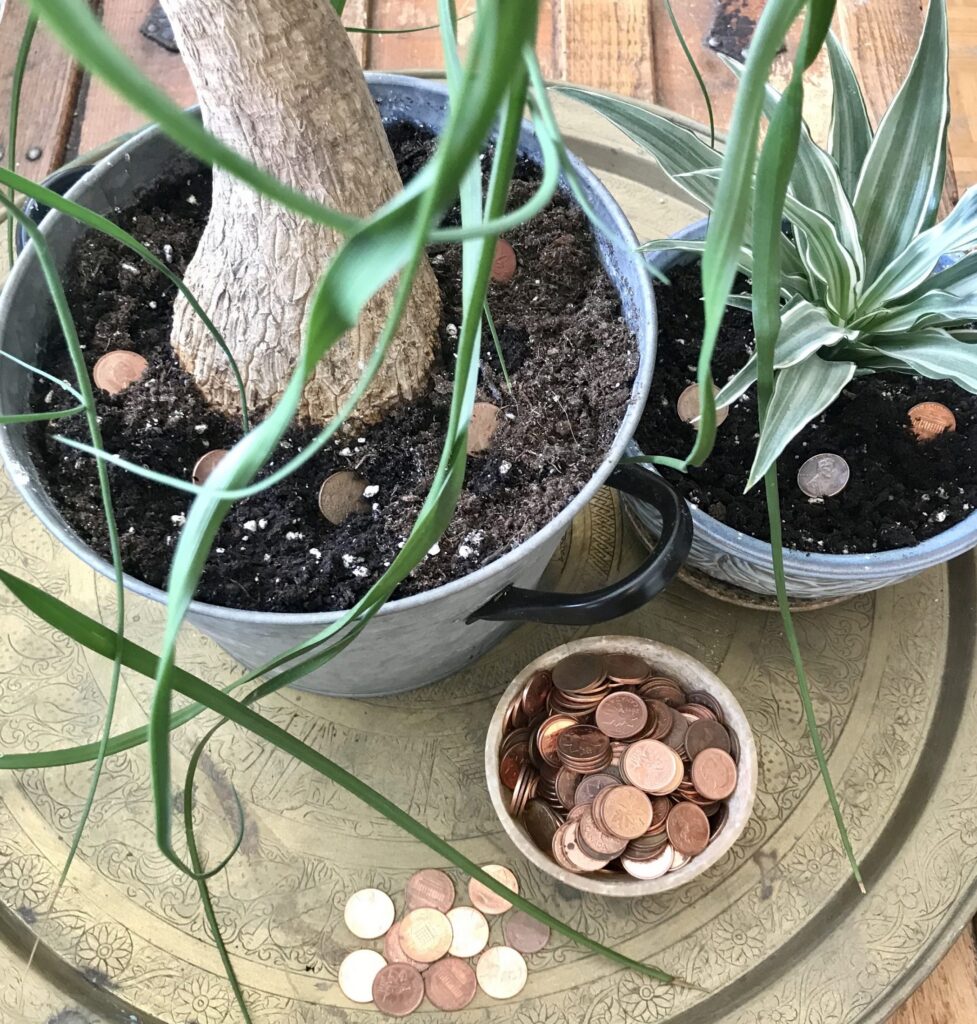
Aspirin is a great plant medicine
Adding aspirin to a vase of cut flowers is a common practice for extending their lifespan.
It has been discovered, however, that giving plants a couple of aspirin can increase their disease resistance.
Aspirin’s salicylic acid is thought to have prepared the plants to better fend off bacterial and insect pests.
Spray the plants with a mixture of one or two aspirin pills dissolved in a gallon of water once every two weeks. Keep your doses low. Plants are sensitive to even small amounts of aspirin, so using it excessively is not recommended.
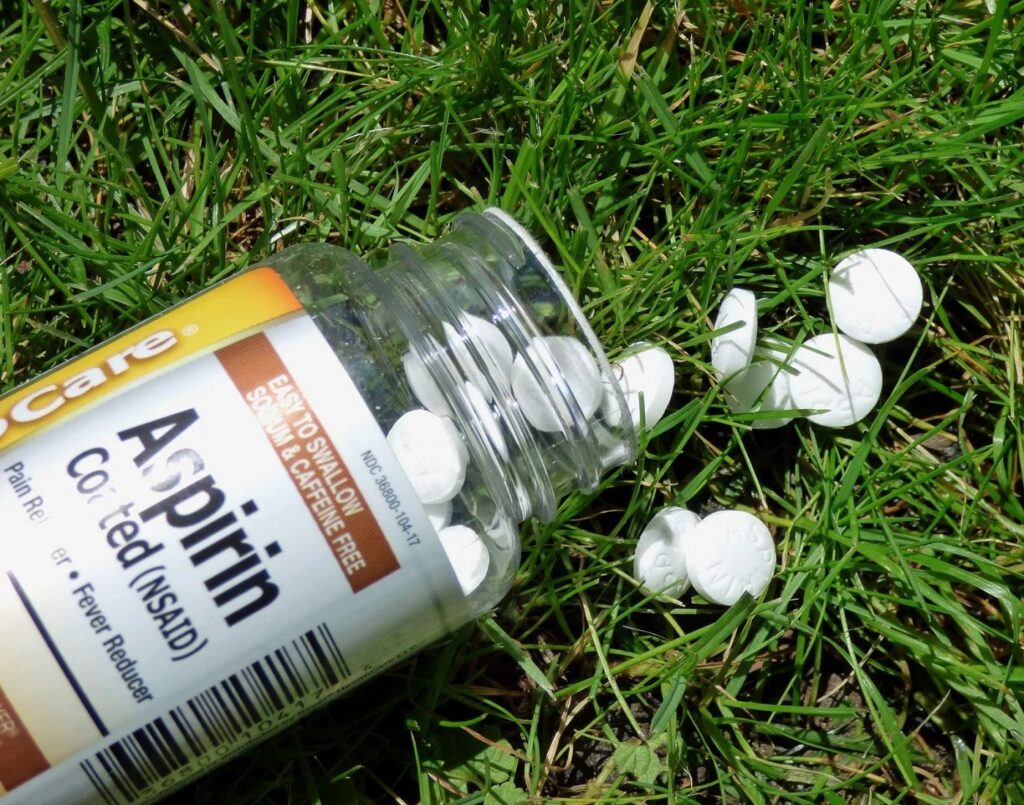
Use soap and water to get rid of aphids
These plant parasites can quickly establish a colony with the help of ant species that feed on sap. Because of how quickly they reproduce, immediate action is required.
Mild infestations can be eliminated with a relaxing bath and some soap and water.
Dish soap’s oil-cutting formula is perfect for this task, as it dissolves the waxy coating on the aphids’ bodies and leaves them more susceptible to dehydration.
Add 2 tablespoons of high-suds dish soap to a gallon of water and mix. Spray the infected plant with this solution, making sure to get in between the leaves and behind the stems.
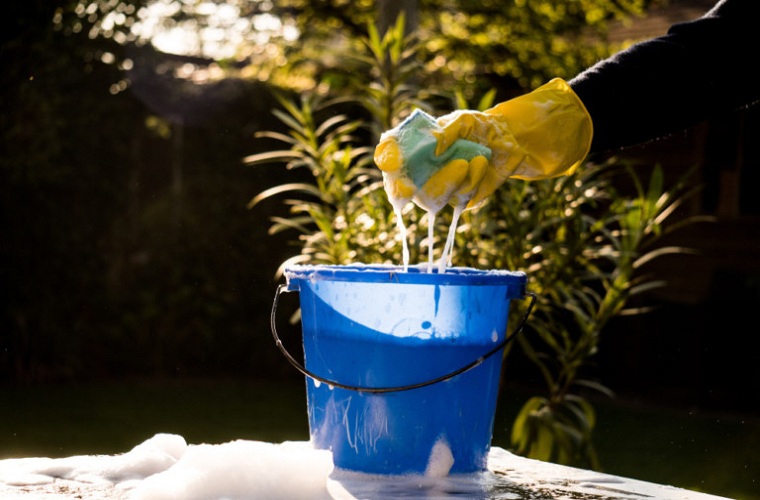
Use Neem oil to keep pests at bay
The best way to keep pests away from food is to use oil made from the seeds of the Neem tree.
It’s not a direct poison, but rather a preventative measure and repellent.
Neem oil prevents insects from reproducing by disrupting their feeding and development.
Make a spray by combining a teaspoon of Neem oil with a quart of warm water and a few drops of any detergent.
Shake well before spraying liberally on the foliage, soaking the plant and surrounding soil. Use within 8 hours of preparing.
Repeat weekly.
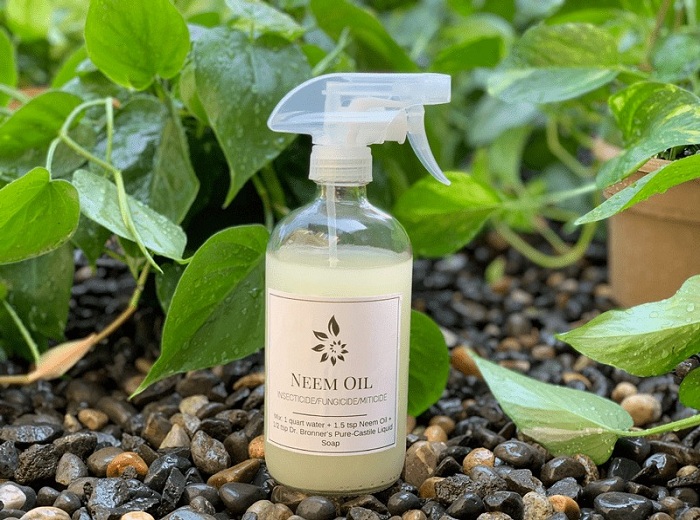
Attract some pest-eating guests
Bring in some natural predators to help keep the pest population in check.
It can be done by purchasing aphid-eating insects from a garden center or on the internet.
Complement this by cultivating insect-beneficial plants like clovers, yarrow, mint, and fennel.
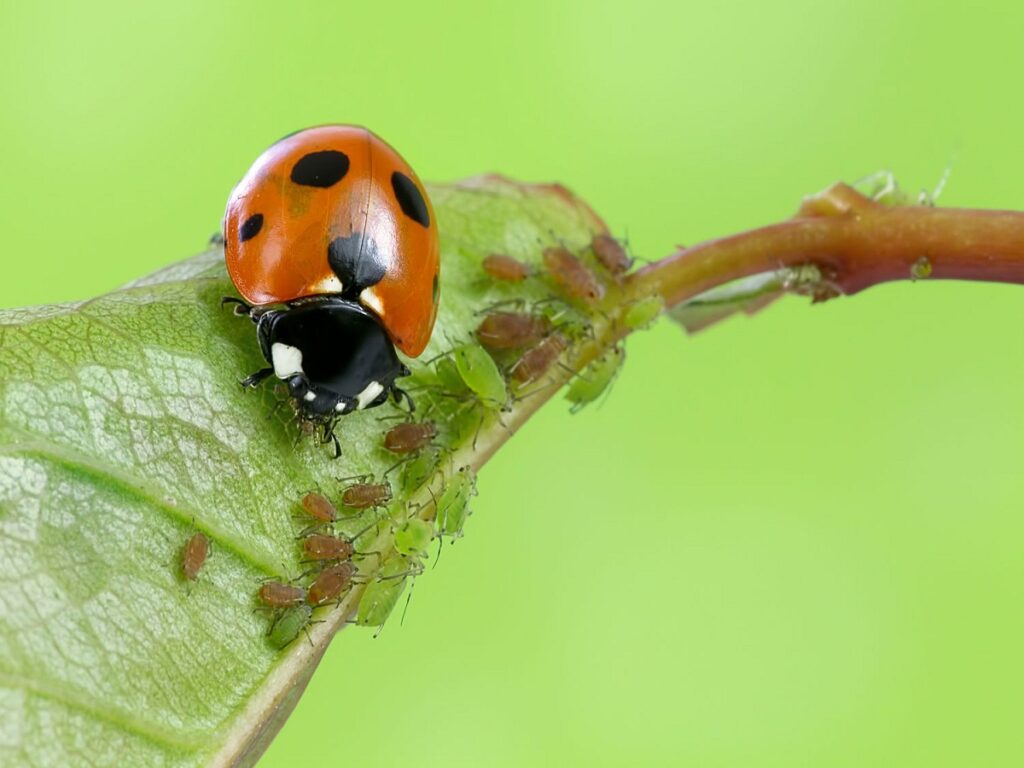
Cola can be used to trap insects
Leave a little cola in the bottle after you drink it, and it can be used to catch insects.
When pest insects are a problem, hang cola bottles from nearby trees. Pests will try to get inside the bottle to get at the sugary liquid, but they will all perish inside.
The traps can also be baited with sugar syrup or molasses, with or without borax. These traps should not be used during flowering times because they can also kill pollinators.
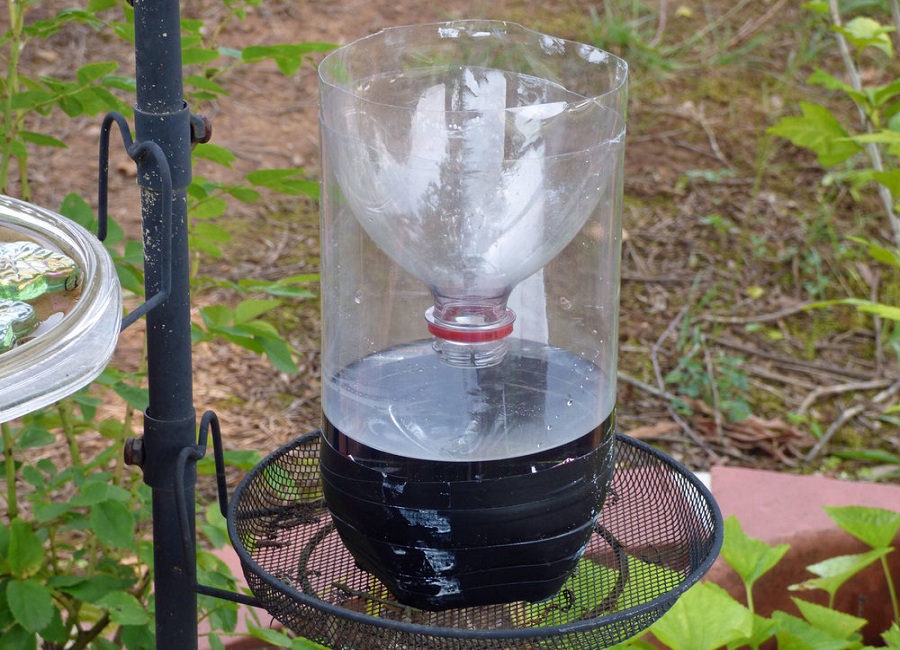
Use borax and honey to control ants in the garden
Ants may not be too destructive to a garden unless they build extensive anthills and tunnel systems, but the aphid farms they maintain can be.
These soft-bodied pests are important to ants because they secrete the honeydew the ants love to eat.
They are carried by ants to plant buds and growing tips, where they multiply and destroy crops. If ants can be managed, aphids can be contained.
Make a paste out of honey and borax to use as an organic ant killer. Alternatives include sugar syrup and peanut butter.
Determine which plants have aphids and apply a borax paste around the stems of those plants.
As they climb the plant, the ants will ingest the borax and become dehydrated. They could even take some with them, wiping out their whole colony.
